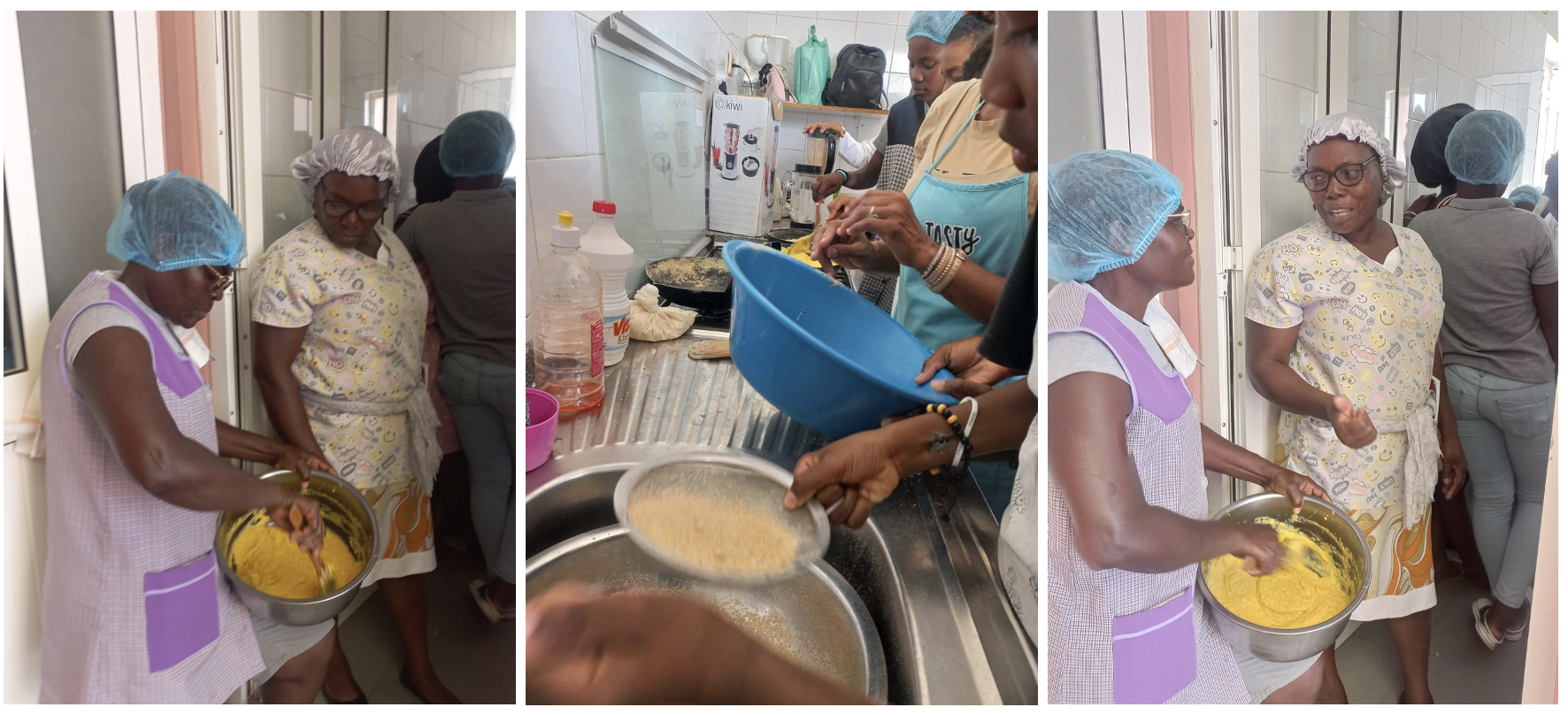“Inova bu Prato: Integral Food Utilization”
September 10, 2024
Author: Samory Araújo, Head of Solutions Mapping, UNDP Cabo Verde Accelerator Lab

In a world where millions go hungry every day, food waste remains a pressing global issue. Cabo Verde, an island nation facing food insecurity due to its dependence on food imports and the effects of climate change, is no exception. However, a new initiative is taking a stand against this problem: the “Inova Bu Prato” project. Launched in partnership between the University of Santiago and the UNDP/Cabo Verde Accelerator Lab, the project aims to have a significant impact on food management practices, starting at the community level.
According to the Global Food Crisis Report 2024, over 20% of people in 59 countries, including Cabo Verde, faced acute food insecurity by 2023.
Despite social transformations that have positively impacted poverty reduction in Cape Verde, significant challenges remain regarding food security.
There is a notable lack of dietary diversity, particularly in rural areas, which complicates the food security situation. Economic difficulties prevent many households from accessing safe, nutritious, and sufficient food, contributing to acute and chronic malnutrition and increasing overweight and obesity rates.
Strategic policies have led to progress in health indicators, but nutritional disorders remain a public health problem.
There are alarming rates of acute and chronic malnutrition, particularly in children, and a rise in overweight and obesity across all age groups.
Micronutrient deficiencies continue to be a significant public health challenge, underscoring the need for more comprehensive nutritional interventions.

The Power of Partnership
According to a United Nations report, around 931 million tons of food were wasted in 2019, with households accounting for most of this waste. This means that a significant portion of global food production—up to 17%—is lost, contributing to food insecurity and nutritional disorders worldwide.
The Inova Bu Prato project at Aldeias SOS is a collaboration between two key players. The University of Santiago provides the academic foundation, offering expertise in nutrition, food science and sustainability. Meanwhile, the UNDP/Cabo Verde Accelerator Lab supports the project by using its experience in innovation and sustainable development to guide the project's structure and scalability. Together, we are working towards a common goal: creating a more sustainable food system, one that is not only good for the environment but also economically and socially empowering for the people of Cabo Verde. The project, led by University of Santiago teacher Ricardo Mendes, was presented to ALDEIAS SOS (is an independent, non-governmental, non-political and non-religious social development organization that works with communities, partners and governments on behalf of disadvantaged children and their families), who immediately accepted the idea of capacity building/training caregivers and community members in techniques to fully utilize food.
The aim of this initiative is not only to educate participants on strategies to reduce food waste, but also investing in skills that reduce environmental, economic, and social impacts of food waste. The caregiver and mothers learnt practical strategies to minimize food waste and ensure that every part of the food is used effectively.

Inova Bu Prato: Empowering Caregivers and Mothers of Aldeias SOS to Combat Food Waste in Cabo Verde
The caregivers and mothers from Aldeias SOS are at the heart of this initiative. These women play a vital role in their communities and are responsible for feeding and caring for the children in their care. Through the “Inova Bu Prato” project, they have had the opportunity to learn practical skills that will have a lasting impact on their families and the wider community. In the Aldeias SOS families, reducing food waste is crucial because it has multiple benefits: it can improve food security by making more food available, and reduce pressure on natural resources and waste management systems.
The training included theoretical and practical sessions to teach participants how to make the most of the food available to them. They learned how to make full use of food resources - using everything from roots to leaves, reducing waste and even turning what could have been thrown away into nutritious meals. This not only solves the problem of food waste, but also helps to improve the quality of the diet by incorporating a variety of nutritious ingredients.
Impact on families and communities
The benefits of the Inova Bu Prato project are many: by reducing food waste, families can reduce their food bills - a crucial benefit in a country where food costs are high. Participants also gain skills that they can share with others, helping to spread awareness and change food management practices within the community. In addition, by promoting a healthier, more varied diet, the project is helping to combat malnutrition and improve the overall wellbeing of the children at Aldeias SOS. Healthier eating habits lead to stronger, more resilient families - a critical factor in building a more sustainable future for Cabo Verde.

Looking ahead: Scaling up impact
While the project is still in its pilot phase, the potential for expansion is promising. The aim is to scale up the initiative and bring its benefits to more communities across Cabo Verde. As the project grows, it is hoped that further partnerships, such as with FAO, will help to increase the reach and impact of this important work.
Conclusion
In a world where food insecurity is a growing concern, initiatives like “Inova Bu Prato” are critical to creating sustainable solutions. By equipping caregivers and mothers with the knowledge to reduce food waste and promote healthier eating habits, the project is taking meaningful steps towards a more sustainable and food secure future.
This project is an example of how community-led initiatives can address global challenges such as food waste while empowering individuals. This collaboration between the University of Santiago and the UNDP/Cabo Verde Accelerator Lab is a testament to the power of partnerships in fostering positive, lasting change.

 Locations
Locations